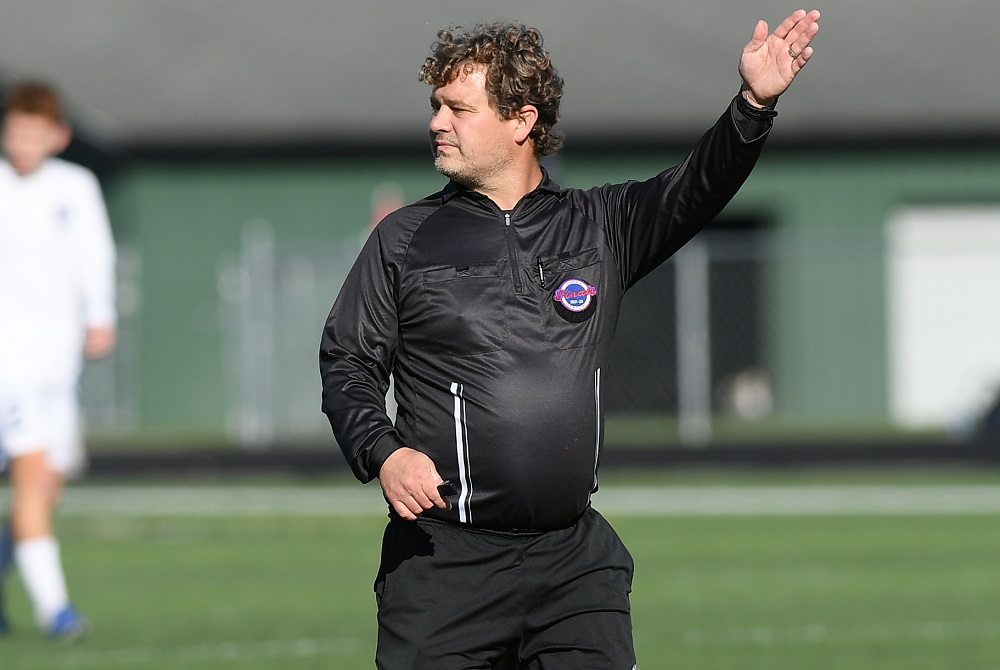
Be the Referee - Unique Kickoff Option
September 27, 2018
This week, MHSAA officials coordinator Sam Davis explains a little-known option unique to high school football regarding kickoffs.
Be The Referee is a series of short messages designed to help educate people on the rules of different sports, to help them better understand the art of officiating, and to recruit officials.
Below is this week's segment – Unique Kickoff Option - Listen
Here’s a football rule you may not know about or have ever seen applied.
After a touchdown or a field goal, the opponent of the scoring team may designate which team kicks off. That’s right! The team just allowing the points can decide who will kick off.
Now why would a team want to do that? Strategically, a team may elect to pin the other team deep in its own end with its own kicker late in a close game rather than risk successfully receiving an onside kick.
Though it is not often used by teams, it is a very clever way to manage the game. I’m sure the national rules makers had other reasons, but now you know about a unique rule that’s unique to high school football.
Past editions
September 20: Uncatchable Pass - Listen
September 13: Soccer Rules Change - Listen
September 6: You Make the Call: Face Guarding - Listen
August 30: 40-Second Play Clock - Listen
August 23: Football Rules Changes - Listen

Be the Referee: Soccer Timing
By
Sam Davis
MHSAA Director of Officials
September 20, 2022
Be The Referee is a series of short messages designed to help educate people on the rules of different sports, to help them better understand the art of officiating, and to recruit officials.
Below is this week's segment – Soccer Timing - Listen
One of the biggest complaints people make about professional soccer is never knowing how much time is really left in the game. The clock counts up from zero, and the referee can add time at their discretion.
But that’s not the case in high school soccer.
To start with, halves are 40 minutes, not 45. The clock starts at 40 and counts down. And when players are injured and the ball is not in play, the clock will stop and then restart when action is ready to continue.
In the last five minutes of the game, the clock stops for substitutions by the leading team, so a coach can’t stall by sending in a new player. When the clock hits zero and the buzzer sounds … the game is over. There’s no guessing how much added time there is – the end of the game is the end of the game.
Previous Editions:
Sept. 13: Volleyball Replays - Listen
Sept. 6: Switching Sides - Listen
Aug. 30: Play Clock - Listen
Aug. 23: Intentional Grounding Change - Listen

